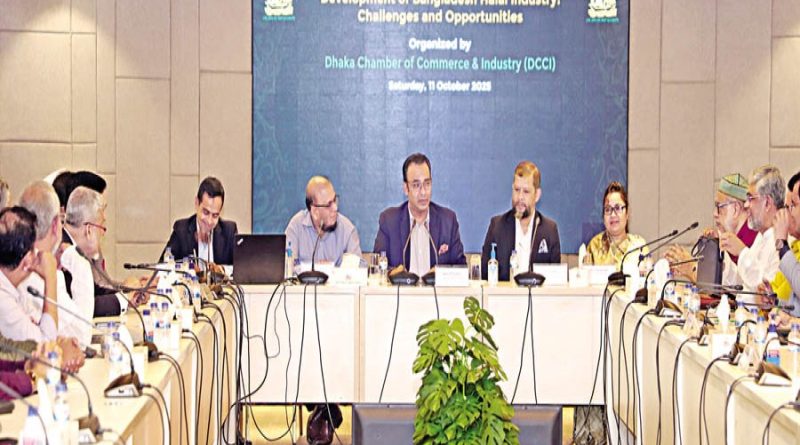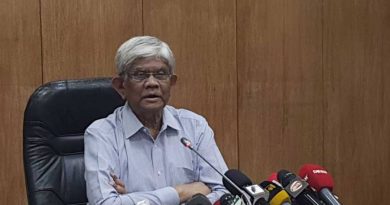Bangladesh’s halal industry is struggling to grow due to weak compliance with international standards, poor logistics, and a shortage of skilled professionals, experts said at a discussion on Saturday.
They identified tariff and certification challenges, outdated testing facilities, and the absence of a national halal policy as major obstacles preventing the country from unlocking its full potential in the fast-expanding global halal market.
The observations came at a focus group discussion titled “Development of Bangladesh Halal Industry: Challenges and Prospects,” organised by the Dhaka Chamber of Commerce and Industry (DCCI) in Dhaka.
Speakers noted that while the global halal market is valued at around US$3 trillion and projected to reach nearly US$9.5 trillion by 2034, Bangladesh’s export earnings from halal products remain below US$1 billion—mostly from agro-based goods.
DCCI Senior Vice President Razeev H Chowdhury said the country has yet to harness the potential of this market due to the absence of a unified halal ecosystem and an independent certification authority recognised internationally. He urged the formation of a national halal certification board and greater public-private collaboration to establish globally accredited testing laboratories.
In his keynote paper, Dr. Mominul Islam of IUBAT pointed out that overlapping roles of the Islamic Foundation and Bangladesh Standards and Testing Institution (BSTI) in issuing halal certificates create procedural bottlenecks. He also cited inadequate laboratory facilities, weak international branding, poor SME participation, and insufficient supply chain infrastructure as critical gaps.
Industry representatives called for digital certification and compliance systems, international-standard lab accreditation, and the use of blockchain technology to trace the entire production chain for halal products.
Islamic Foundation Deputy Director Md. Abu Saleh Patwary said no single government agency is equipped to manage halal certification alone, stressing the need for coordinated oversight.
Export Promotion Bureau Director General Baby Rani Karmakar noted that while the global halal market is expanding at about 12 percent annually, Bangladesh is lagging far behind and must act quickly to increase its share.
BIDA Director General Md. Ariful Hoque added that the halal sector could become a key driver of post-LDC export diversification, revealing that the government is considering setting up a dedicated halal industry economic zone.
Former DCCI Vice President M. Abu Hurairah suggested low-interest financial incentives for rural women involved in animal husbandry to strengthen the country’s halal food base.
Other speakers, including DCCI Director Enamul Haque Patwary and former Senior Vice President Alhaj Abdus Salam, echoed the need for strong policy support and collaboration among regulators, industry players, and development partners to build a robust halal ecosystem in Bangladesh.






